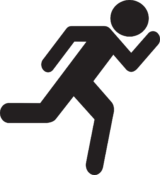10 Signs You Are Healing Well from a Head Injury
Recovering from a head injury can be a daunting journey, filled with ups and downs. But how do you know if you’re on the right track? Understanding the signs of healing can provide reassurance and guide you towards a full recovery. In this blog post, we’ll explore the key indicators that your head injury is healing well. Let’s dive in! 🧠
Table of Contents
1. Introduction
2. Reduced Pain Levels
3. Improved Cognitive Function
4. Better Sleep Patterns
5. Enhanced Mood and Emotional Stability
6. Increased Energy Levels
7. Improved Balance and Coordination
8. Reduced Sensitivity to Light and Sound
9. Return of Normal Appetite
10. Positive Feedback from Healthcare Providers
11. Conclusion
12. FAQs
Reduced Pain Levels
One of the most immediate signs that your head injury is healing is a reduction in pain levels. As the brain starts to recover, you might notice fewer headaches or a decrease in the intensity of pain. If you find yourself reaching for pain relievers less often, that’s a positive sign! 🎉
Improved Cognitive Function
Head injuries can often lead to cognitive challenges such as memory issues or difficulty concentrating. If you notice improvements in your ability to focus, remember details, or process information, it’s a clear indication that your brain is on the mend.
Better Sleep Patterns
Sleep disturbances are common after a head injury. However, as you heal, you might find that you’re sleeping more soundly and waking up refreshed. A regular sleep pattern is a great indicator of recovery. 💤
Enhanced Mood and Emotional Stability
It’s not uncommon to experience mood swings or emotional instability after a head injury. Seeing improvements in your mood, feeling less irritable, or having a more stable emotional state are all positive signs of healing.
Increased Energy Levels
As your body devotes less energy to healing, you might notice a boost in your overall energy levels. Feeling more energetic can encourage you to engage in physical activities and return to your daily routine more comfortably.
Improved Balance and Coordination
Head injuries often affect your balance and coordination. Noticing improvements in these areas, such as walking without wobbling or feeling more stable on your feet, indicates progress in your recovery journey. 🚶♂️
Reduced Sensitivity to Light and Sound
Sensitivity to light and sound is a common symptom after a head injury. If you find that bright lights or loud noises are becoming less bothersome, it’s a sign that your brain is healing.
Return of Normal Appetite
Changes in appetite can occur after a head injury. A return to your normal eating habits and appetite is a positive sign that your body is recovering and returning to its usual state.
Positive Feedback from Healthcare Providers
Regular check-ins with your healthcare provider can provide valuable insights into your recovery. Positive feedback and encouragement from your doctor or therapist can validate what you’re feeling and confirm that you’re on the right track.
Conclusion
Healing from a head injury requires patience and attention to your body’s signals. By recognizing these signs of recovery, you can feel more confident in your healing journey. Remember, each person’s recovery is unique, and it’s essential to consult with healthcare professionals to guide you through the process. Keep taking steps forward, and soon enough, you’ll be back to your vibrant self! 🌟
FAQs
1. How long does it take to recover from a head injury?
The recovery time varies depending on the severity of the injury. Mild head injuries might heal within a few weeks, while more severe injuries could take months or even longer. Always follow your healthcare provider’s advice.
2. Can I speed up my recovery from a head injury?
While you can’t necessarily speed up the process, maintaining a healthy lifestyle, getting plenty of rest, and following your doctor’s recommendations can support your body’s natural healing process.
3. What should I avoid during my recovery from a head injury?
Avoid activities that could risk another injury, such as contact sports, until cleared by your doctor. It’s also wise to limit screen time and exposure to bright lights if you experience sensitivity.
4. Is it normal to feel emotional after a head injury?
Yes, emotional changes are common after a head injury. It’s important to communicate with your healthcare provider if these feelings persist or interfere with your daily life.
5. When should I seek further medical attention during recovery?
Seek immediate medical attention if you experience severe headaches, repeated vomiting, seizures, or any sudden changes in your symptoms. Always err on the side of caution and consult a professional if you’re unsure.
